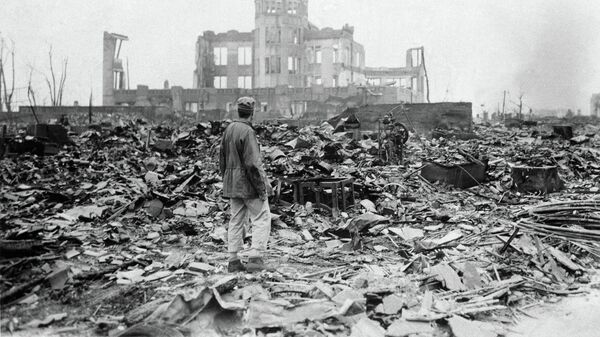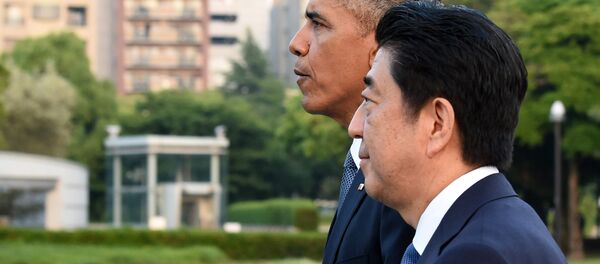Since then nuclear bombs have never been used by any country, and the 1945 bombings remain controversial. While some argue that the use of the atom bomb led to a swift end to the war and prevented millions more being killed on both sides, others have called its use a war crime.
Each year on August 6 the Peace Memorial Ceremony is held at the Hiroshima Peace City Memorial Monument to remember the victims of the attack. The ceremony is attended by survivors, who talk about their tragic experience and campaign for an end to nuclear weapons.
Survivors of the atomic explosions at Hiroshima or Nagasaki are called Hibakusha, and their average age is 80.
Sunao Tsuboi, 92, is a hibakusha and anti-nuclear and anti-war activist. The co-chair of Nihon Hidankyo the Japan Confederation of A- and H-Bomb Sufferers Organization, he told Sputnik that the most important thing is to prevent another nuclear attack from ever happening again.
"It was a really terrible story. But I think that now, it's not so important to discuss who was right and wrong, the US or Japan. The atomic bomb is a mistake of humankind. We need to think about the future, we need to concentrate all our powers on creating a world without nuclear weapons," Tsuboi said.
At last year's ceremony to mark 70 years since the Hiroshima bombing, Japanese President Shinzo Abe announced Japan's plans to submit a draft resolution to the UN on nuclear disarmament.
"A lot of nuclear weapons were accumulated during the Cold War, enough for half a million Hiroshimas, threatening to destroy all life on Earth. Over the past 20 years the amount of nuclear weapons has declined significantly, also in the US and Russia. However, there are still a lot," Arbatov said.
"The doctrine of mutually assured destruction played a positive role in stopping the use of nuclear weapons, but that model is becoming obsolete due to the appearance of new and more dangerous players," he said, and warned about the consequences of jihadi terrorist groups getting access to nuclear weapons.
"In the Middle East there are nationalist and fundamentalist regimes which could go down that path. The situation is bad on the Korean peninsula as well, and some people are talking about the possibility of an armed conflict with some use of nuclear weapons, which was unthinkable until a short time ago,"Arbatov said.




